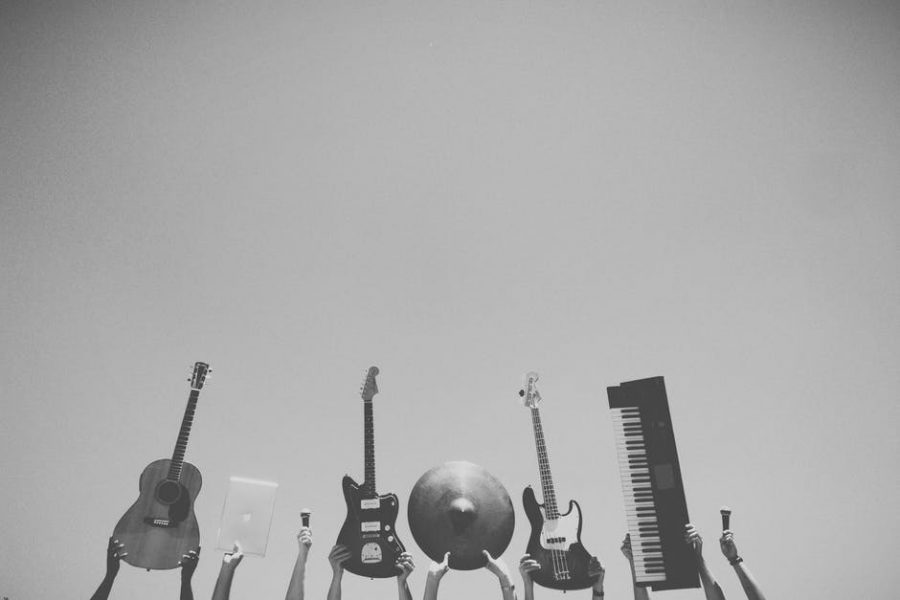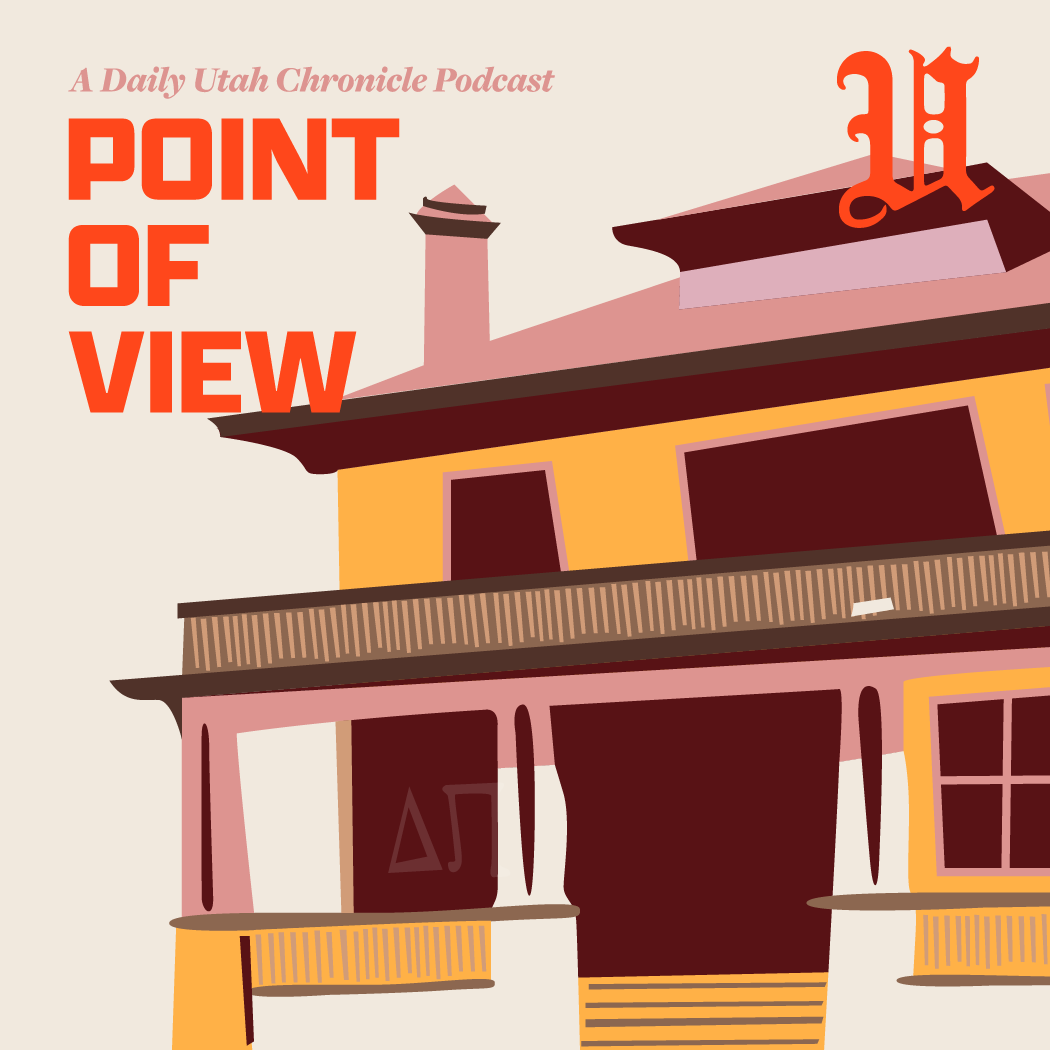Exploration of Space, Time and Death: A Review of New Foals Album
November 12, 2019
In their sixth studio album, “Everything Not Saved Will Be Lost: Part 2,” Foals, a rock group based out of Oxford, explores themes of mortality, humanity and the realities of life. On March 8, 2019, Foals released “Everything Not Saved Will Be Lost: Part 1,” and the over six-month-long wait until the sequel was released on Oct. 18 proved almost excruciatingly painful. The cliffhanger ending of “Part 1” created a sense of urgency in the wait for “Part 2,” but now that the album is here, the wait was well worth it. Centered on a post-apocalyptic world, this album discusses what it means to survive tragedy and loss, and it asks, how do we find life after everything we’ve ever known has been destroyed?
Complete with critiques of technology, modern politics and toxic masculinity, “Everything Not Saved Will Be Lost: Part 2” provides harsh social commentary through their music which ranges from blues and rock. The genres inspired gritty tracks to spacey and somewhat psychedelic instrumental explorations. As compared to “Part 1,” the latest album from Foals gives listeners a sense of hope. “Part 1” is heavily focused on themes of destruction, climate change, surveillance and the degradation of society. “Part 2” continues these themes, but it also answers them through a focus on what happens next. Both parts were recorded simultaneously, but listening to the two albums in chronological succession reveals a commentary on the destruction within our current society and how we might live in the post-apocalypse that we are racing towards.
Track by Track
The album opens with the track “Red Desert.” As an instrumental track, this opener sets the stage for the mood of the album. “Red Desert” is melancholic and it combines sonic qualities from both the wild west and the final frontier — space. This song then leads into “The Runner,” which continues the riffs introduced at the beginning of the album. “The Runner,” as the second single to be released from this album, continues the thematic qualities that Foals has introduced with this set of albums, but this track stands out as it suggests a sense of perseverance that could prove vital in a post-apocalyptic world.
Next up on the album is the track “Wash Off.” This song feels very similar to “The Runner” in its rhythms and dark yet punchy energy, but lyrically, it helps establish the band’s critique of modern technology. In “Wash Off,” frontman Yannis Philippakis sings, “So kill the screen, head to Medellin / To shout and scream and find your trouble / Live amongst the orange roses.” In a trade of technology for nature, this song argues for the importance of regression to our natural state, and these lyrics in particular also evoke the album’s artwork — a graveyard overrun with orange flowers, suggesting that after everything we do, nature will still outlive our actions and our lives.
The first single off the album “Black Bull” is grating, heavy and brash, and the fact that it was released first demonstrates “Part 2” takes Foals into darker discourse. The third and final single prior to the album’s release, “Into the Surf,” presents a melancholic look at death, grief and how we go on living after suffering a great loss. Philippakis sings, “And if I don’t make it home / Wrap the jasmine ’round my bones / A garland in the sea.” The sea is a place of comfort after a painful death, and while death is a part of life, moving towards accepting this fact is challenging and emotionally draining.
Paired in the latter half of the album, the tracks “Ikaria” and “10,000 Feet” explore the myth of Icarus. “Ikaria,” a shorter and instrumental track, offers a hopeful and optimistic interlude, suggesting that there is a light at the end of the tunnel for humanity. “10,000 Feet,” taken from the perspective of Icarus, returns to a discussion of hubris and modern politics. These ancient stories reveal that we still have destructive habits in our contemporary world, and we must still reckon with this aspect of our nature.
Final Verdict
From the album, my favorite songs are “Like Lightning” and “Dreaming Of.” These two songs are paired near the halfway point of the album, and together, they effectively communicate the messages of the album. “Like Lightning” has a bluesy and soulful sound, and while there is still anger and arrogance in the lyrics, the song itself is inviting, intoxicating and has an invigorating delivery. The hook, “Under a setting sun / I will not be undone / My day has just begun” suggests a sense of perseverance in the face of hardship. Then, on a completely different wavelength, “Dreaming Of” offers an energetic, airy and hopeful look towards the future. This song discusses what it means to cope in the transitional periods of life, and its combination of gentle verses against a more rock-inspired and grittier chorus inherently suggests the difficulty of understanding change.
“Everything Not Saved Will Be Lost: Part 2” concludes with “Neptune.” This 10-minute song continues the space-like elements presented throughout the album, and the watery imagery offers a direct reversal of the desert that was presented at the beginning of the album. This song concludes the discussions of mortality within the album, and as it discusses the persistent passage of time, our lack of control in life and death is welcomed. Through rock elements, a crescendo in the middle of the song and an emotionally calm interlude, “Neptune” leads the listener through the process of accepting death as a part of life. After a desperate call for release from the claustrophobic and compressed stresses of contemporary life, the track concludes as Philippakis repeats, “Come take me away” as the final line, a total acceptance of human mortality.
As a whole, “Everything Not Saved Will Be Lost: Part 2” offers an enchanting and captivating discussion of mortality in the midst of critiques of modern life. Paired with “Part 1,” this combination of albums demonstrates that Foals creates politically powerful messages within their music that ranges from alternative rock and new wave to dance anthems and spacey atmospheric genres.








